India's Kumbh Mela festival begins amid Covid concerns
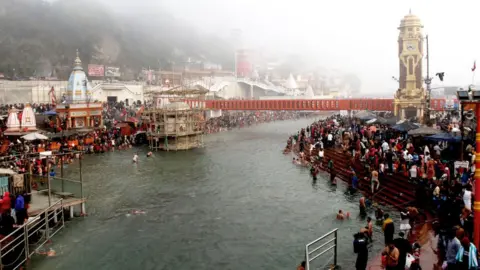 Getty Images
Getty ImagesThousands of pilgrims have gathered on the banks of India's Ganges river at the start of the Kumbh Mela, billed as the world's largest human gathering.
One of the most auspicious events in Hinduism is taking place this year during the coronavirus pandemic.
Hundreds bathed on day one of the festival, seeking to wash away sins.
Officials say they are following pandemic guidelines, but most bathers are not wearing masks. Only the US has more Covid cases than India.
However, India has lower death rates than many nations and is not in lockdown.
Hindus believe bathing will help them attain "moksha", setting them free from the cycle of birth and death.
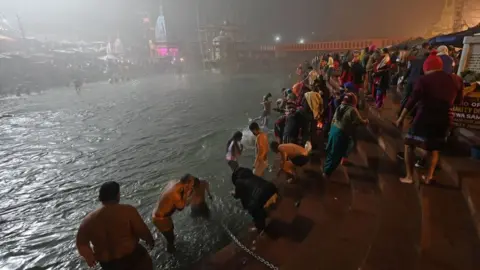 Getty Images
Getty ImagesThe mela (meaning "fair" in Hindi) is being held in the northern holy town of Haridwar in Uttarakhand state.
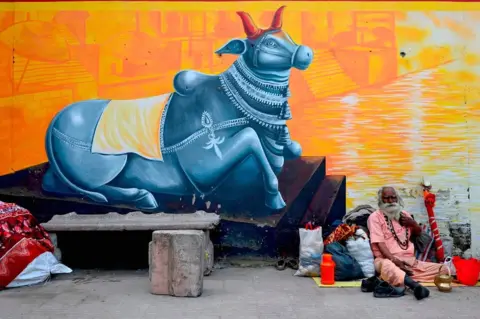 AFP
AFPAccording to news channel NDTV, pilgrims started arriving at Har ki Paudi, a famous bank of the river Ganges in Haridwar, at 03:00 local time and bathing started an hour later.
The event normally attracts tens of thousands, but this time the authorities are discouraging large crowds because of the risks due to Covid-19.
 Anadolu Agency
Anadolu Agency
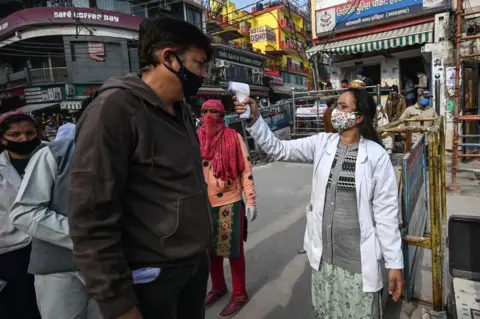 AFP
AFPDistrict officials have warned people to come only after they've tested negative, wear masks at all times and maintain social distancing, but local journalists say few were following these rules.
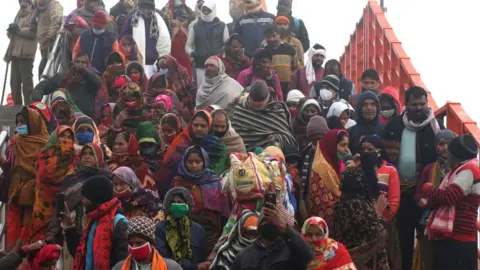 Getty Images
Getty ImagesAt a recent court hearing, petitioners raised concerns that unless the numbers were strictly controlled, the event could become a breeding ground for Covid-19, and that enforcing such measures would be difficult at a gathering of such a scale.
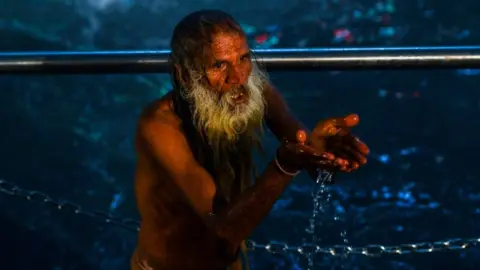 Getty Images
Getty ImagesOfficials said last month that the event will be held for 48 days instead of the three-and-a-half months due to the coronavirus pandemic, according to news agency ANI.
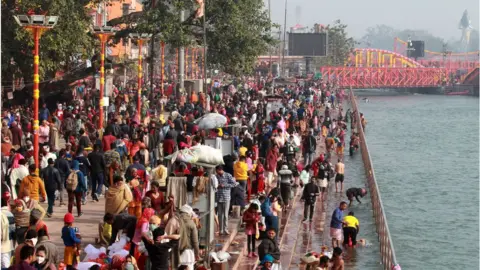 Getty Images
Getty ImagesState police officials have also announced that elite National Security Guard (NSG) commandos will be deployed at the event for security purposes.
All images subject to copyright.
